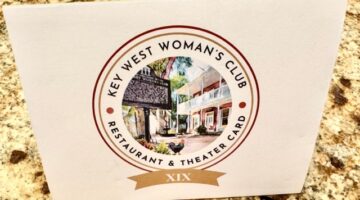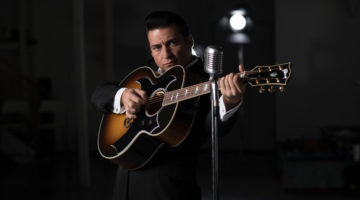America’s inaugural poet visits Cuba amid warming with US
MICHAEL WEISSENSTEIN, Associated Press
EL ESPARTACO, Cuba (AP) — The old woman looked suspiciously from her window as American poet Richard Blanco and a writer friend clambered out of a battered Soviet-era sedan and walked up to her front porch.
“I’m looking for my grandparents’ house,” Blanco explained, reciting the names of relatives who lived in what used to be this sugar boom town before the Cuban Revolution.
“Ah, you’re Carlito’s son!” 83-year-old Moraima Gonzalez declared. She rushed out her door to embrace the visitor, her face blooming into a smile. “Those people are family to me! I’m so happy to see you!”
Blanco made his first trip to Cuba after President Bill Clinton loosened travel restrictions in the 1990s. In 2012, he became a symbol of modern America when he was selected to be the inaugural poet at President Barack Obama’s swearing-in — the first Latino, the first openly gay person and the first immigrant to hold the title.
This week, Blanco, 47, flew to his parents’ homeland after more than a half decade away, as part of an effort to accompany the warming of diplomatic and economic ties with an emotional reconciliation through art and literature.
Blanco and his longtime friend Ruth Behar, a renowned chronicler of Cuban-American life and Jewish communities in Cuba, took a weeklong tour of the island, introducing each other to friends and relatives and recruiting Cuban writers and artists for a new website that will feature writing about life on both sides of the Florida Straits.
After President Barack Obama’s Dec. 17 announcement of detente, “I felt like I’ve never been more American and more Cuban, ever,” Blanco said. “Like I can actually have two homes and love two countries.”
Following a series of readings around the country, the writers said Thursday that they were heartened by the eager response from Cuban artists who want to contribute to their website, http://bridgestocuba.com . They also decided to send their content monthly to Cubans by email to get around the problems caused by the lack of Internet access in one of the world’s least-connected societies.
The pair read from their work in Havana and the southern coastal city of Cienfuegos, then spent much of Wednesday in El Espartaco, the hometown of Blanco’s parents, before heading north to the city of Matanzas.
For Blanco, whose last visit was in 2009, the trip served as a measure of the changes in Cuba since President Raul Castro launched a series of economic reforms about a year later.
He said he was taken aback by a series of experiences he never had before in Cuba — going to a restaurant so upscale that he felt underdressed; watching two male actors embrace on stage in a short play; and having a waiter say a dish had been taken off the menu because the main ingredient didn’t meet the chef’s standards.
“For a moment I forgot I was in Cuba. Everything had become so much easier to do,” he said.
Some changes are bittersweet. Many of his younger relatives have left the island to seek prosperity in South Florida, where he grew up after he was born in Spain. Even older relatives now travel back and forth between Cuba and the U.S. thanks to the liberalized travel policies of both governments.
Important changes have come even to El Espartaco and Cienfuegos, where time appears to have stood still since the 1960s in the eyes of the casual foreign observer. Some of Blanco’s cousins used to secretly keep a pig on the roof of their two-story home in order to have a source of food and income. Today the pig is gone, and they rent the front room of their house to a private business owner selling souvenirs to tourists.
El Espartaco’s American-built sugar mill was closed more than a decade ago, disassembled and sold to a Japanese company for scrap. But the town is growing as migrants from the countryside move in to work for privately owned farms, harvesting rice, beans and root vegetables for a few dollars a day.
Behar and Blanco are optimistic that more change is coming and hope it will help Cuba transition into a healthier economy without the inequality of many of its Latin American and Caribbean neighbors.
“They should own part of the prosperity that I think is coming down the pipeline,” Blanco said.
Cuban-Americans, with their ties to the island and American money and resources, are already the source of much of the cash sustaining the island, both in remittances to relatives and investments with entrepreneurs who are relatives or just partners.
But much hurt remains unresolved inside divided families, both writers said, something they hope the discussion prompted by their website can resolve.
“Is it all going to be empty slogans or it is going to be meaningful in some way?” Behar said.
Blanco said he hoped families and the countries’ two governments can work to develop new relationships that lead to a more sustainable Cuban system.
“How,” he asked, “can you take the good from everything, put it all together and make it better?”
[livemarket market_name="KONK Life LiveMarket" limit=3 category=“” show_signup=0 show_more=0]



No Comment